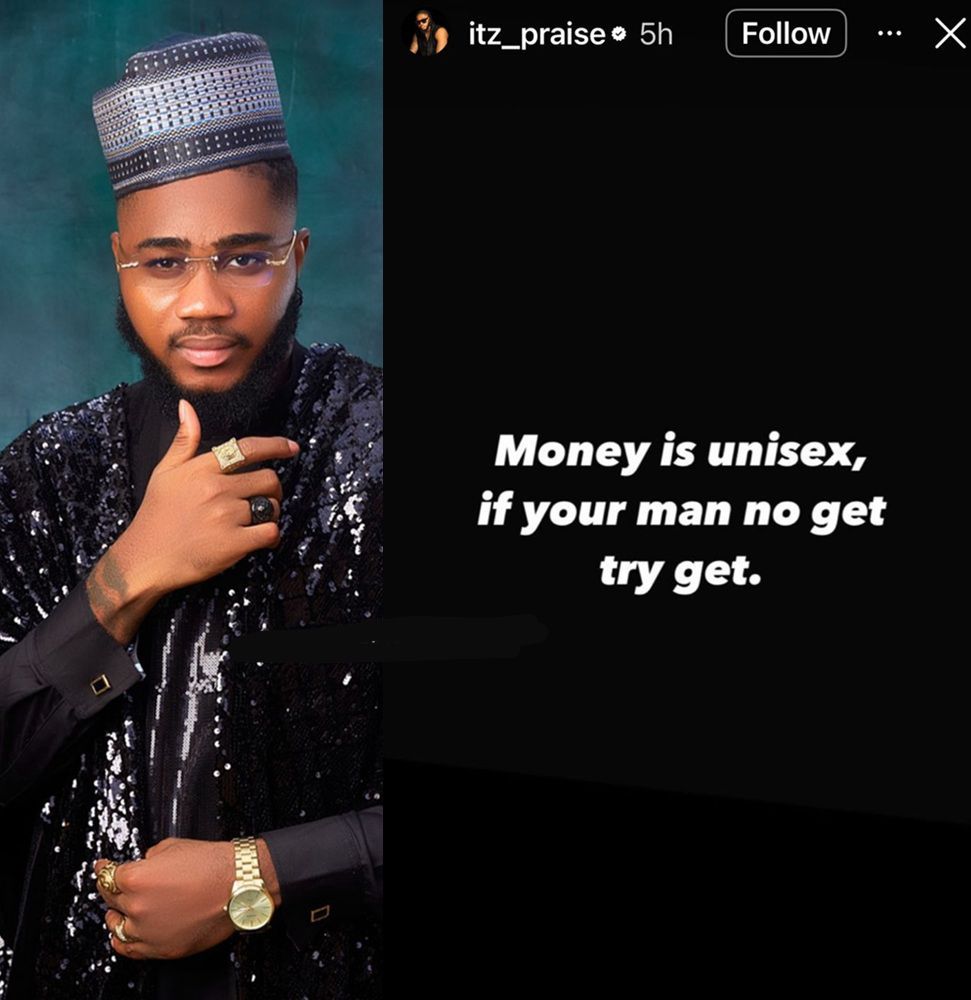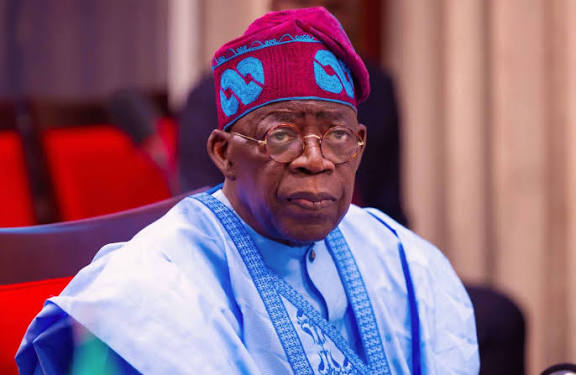
BBNaija’s Praise Sparks Online Frenzy with Bold Message to Women: ‘Money is Unisex, If Your Man No Get, Try Get!’

Reality TV star and fitness coach Praise Nelson, famously known from his time in the Big Brother Naija house, has once again stirred the internet with a simple but powerful message directed at women. Taking to his social media platform, Praise dropped a statement that immediately caught fire among fans and followers: “Money is unisex, if your man no get, try get.” In a world where gender roles around finances are rapidly evolving, Praise’s unapologetic call for women to secure their own financial future struck a nerve—and sparked a conversation that shows no signs of slowing down.
The post, short yet packed with weighty meaning, resonated across various platforms, from Instagram to X (formerly known as Twitter), with thousands weighing in with comments, retweets, and hot takes. While some praised Praise for promoting financial independence among women, others debated the cultural expectations surrounding men and money, especially in relationships. Praise’s words may have been brief, but they hit directly at a longstanding narrative: the idea that men are the primary providers, and women should simply be the receivers. By declaring that money is unisex, Praise challenged the traditional script and encouraged women to take active control of their financial lives, whether or not they have a partner providing for them.
Praise, who has consistently used his platform to share motivational thoughts and glimpses into his personal philosophy, is no stranger to sparking conversations that go beyond surface-level entertainment. Over the years since his BBNaija season, he has evolved into more than just a reality star—he’s now viewed as a voice for personal growth, fitness, and financial self-reliance, especially among young Nigerians navigating a tough economy. This latest statement feels especially timely as economic hardships in many parts of Africa continue to widen the gap between dreams and survival.
Reactions poured in almost instantly. Some women applauded the BBNaija star, echoing his sentiment with comments like, “Exactly! Women need to stop waiting for men to change their lives,” and “I love this energy. We’re no longer waiting to be rescued, we’re rescuing ourselves.” Others pointed out that while it’s important for women to be financially independent, the reality in some places still makes it harder for women to access the same economic opportunities as men, a reminder that financial freedom isn’t just about mindset—it’s also about dismantling systemic barriers.
Still, the larger wave of responses seemed largely supportive of Praise’s message. Many pointed out that in today’s world, relying solely on a partner for financial stability is a risky gamble, and that every individual, regardless of gender, needs to think seriously about building wealth, creating opportunities, and securing their own future. In an era where layoffs, inflation, and unpredictable economies can turn fortunes overnight, the wisdom of not putting all your eggs in one basket, or in one person's wallet, feels more urgent than ever.
Critics, however, weren’t completely silent. Some traditionalists argued that Praise’s message eroded the values of partnership, suggesting that it shifts relationships into competitions instead of collaborations. Others asked whether urging women to ‘try get’ if their man ‘no get’ implies a transactional view of love and partnership. But supporters quickly countered that financial stability doesn’t mean replacing love with money—it simply means refusing to tie your destiny to someone else's financial decisions or circumstances.
Throughout Nigerian pop culture, the topic of money and relationships has always been a hot-button issue. In songs, movies, and everyday conversations, the expectation for men to be the breadwinners still looms large. However, the tide has been turning, particularly among younger generations, who view financial independence as a basic necessity for both partners, not just a bonus. Praise’s bold post adds another voice to that growing movement, reminding women that their dreams, goals, and financial futures are too important to be left in someone else’s hands.
What makes Praise’s message even more powerful is its simplicity. No long speeches. No complicated arguments. Just a blunt, relatable truth in Nigerian Pidgin English that cuts across social and economic classes: “Money is unisex, if your man no get, try get.” In those few words lies a call to action: hustle, build, dream, and secure your own bag, because waiting on someone else’s money could mean waiting forever.
The impact of his statement also taps into the broader conversation about gender equality in Africa and around the world. As women increasingly step into leadership roles, run businesses, and dominate industries once closed off to them, the idea that money belongs to one gender alone feels outdated. Money doesn’t have a gender, and neither should ambition. Whether it’s launching a side hustle, climbing the corporate ladder, pursuing a passion project, or learning new skills, women everywhere are embracing the idea that financial freedom is not a luxury—it’s a necessity.
Praise’s post, though seemingly casual, might just have given fuel to another wave of ambition among young women. It’s a reminder that nobody should wait for permission to succeed, and certainly not wait for a partner’s bank account to define the limits of their dreams. In an age where economic realities demand resilience and self-sufficiency, his words serve as both a wake-up call and a rallying cry.
As the comments continue to pile up and debates rage on, one thing is clear: Praise’s message has landed exactly where it was needed. In a world still grappling with the balance between tradition and progress, a simple reminder that “money is unisex” challenges old mindsets and invites a new era where women are not just passengers in their financial journeys—they are the drivers. Whether you agree completely or still hold onto older ideals, there’s no denying that Praise’s words have sparked a powerful conversation. And sometimes, that’s exactly where change begins—with just one bold voice saying what many are thinking, but few dare to say out loud.


